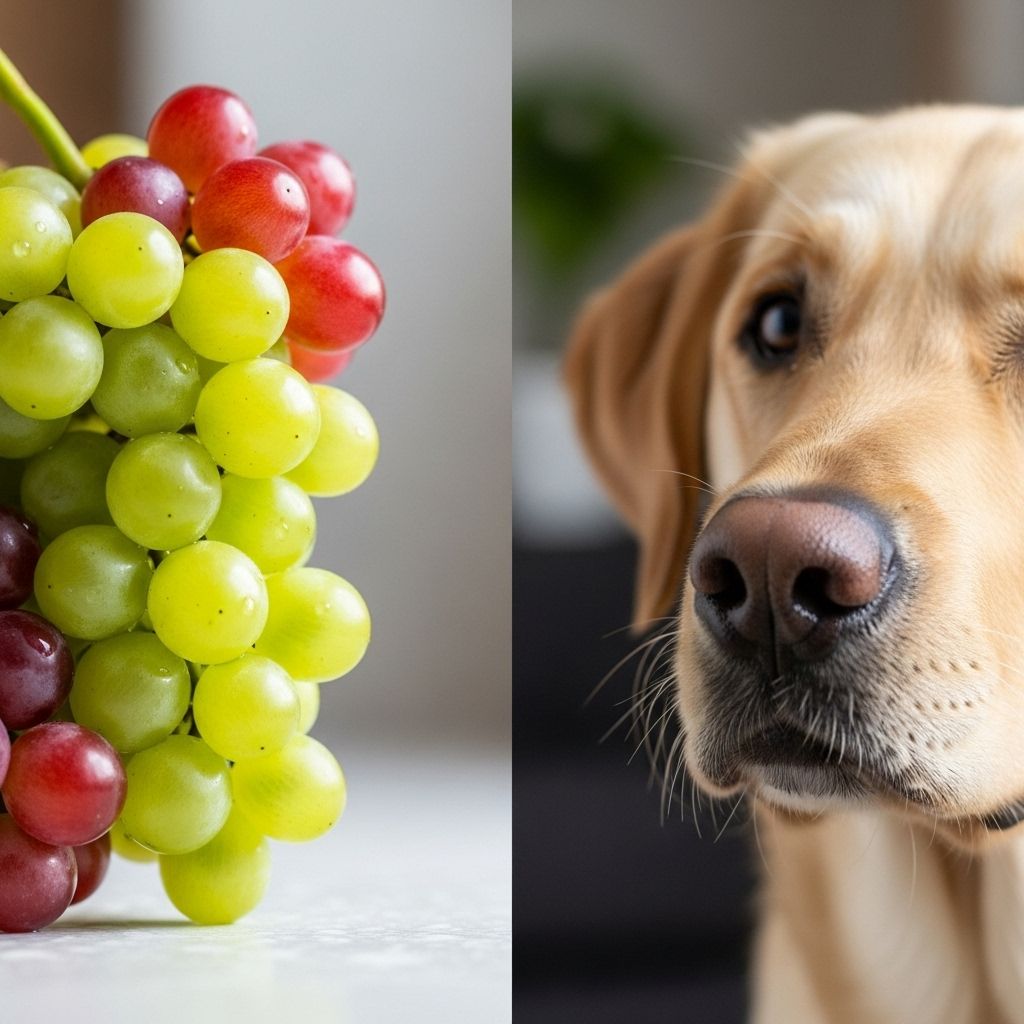Can Dogs Eat Grapes? A Comprehensive Guide
Understanding Grape Toxicity in Dogs

Introduction to Grape Toxicity in Dogs
Grapes, although a healthy snack for humans, are highly toxic to dogs. The exact mechanism of grape toxicity is not fully understood, but it is known to cause severe kidney damage and potentially lead to sudden kidney failure in dogs. This article delves into the risks associated with grape consumption in dogs, why they are harmful, and how you can protect your pet from these toxic fruits.
Why Are Grapes Toxic to Dogs?
The reason grapes are toxic to dogs is still under investigation. However, research suggests that the toxicity might be linked to certain compounds found in grapes, such as tannins, flavonoids, and possibly tartaric acid. Unlike humans, dogs seem to have trouble metabolizing these compounds, which can lead to accumulation and severe health issues.
Types of Grapes and Their Toxicity
All types of grapes, regardless of color, variety, or whether they have seeds, can be toxic to dogs. This includes:
- Red, Green, or Purple Grapes: Each type poses a risk, regardless of the color.
- Seeded vs. Seedless Grapes: The presence or absence of seeds does not affect the toxicity.
- Organic or Non-Organic Grapes: Both organic and non-organic grapes are toxic.
- Dried Grapes (Raisins): Raisins are more concentrated in toxic compounds, making them even more dangerous.
- Homegrown or Store-Bought Grapes: The source of the grapes does not influence their toxicity.
Health Risks of Grape Consumption in Dogs
The most significant risk associated with grape consumption in dogs is acute kidney failure. The severity of the symptoms can vary greatly between dogs; some may show no immediate signs of illness, while others can experience severe reactions after eating just one grape.
Symptoms of Grape Toxicity in Dogs
If your dog ingests grapes, monitor them closely for the following symptoms:
- Vomiting
- Diarrhea
- Lethargy
- Loss of Appetite
- Increased Urination
- Increased Thirst
Prevention and Treatment
Preventing grape consumption is key to keeping your dog safe. Keep grapes and grape products out of reach. If you suspect your dog has eaten grapes, contact your veterinarian immediately. Early treatment can help prevent serious complications.
What to Do If Your Dog Eats Grapes
Even if your dog seems fine after eating grapes, seek veterinary advice right away. Symptoms can take several hours to develop, and prompt treatment is crucial for the best outcomes.
Frequently Asked Questions (FAQs)
Q: Are all grapes toxic to dogs?
A: Yes, all types of grapes, including red, green, and seedless, are toxic to dogs.
Q: What should I do if my dog eats a grape?
A: Contact your veterinarian immediately, even if your dog seems fine at first.
Q: Can grape toxicity be prevented?
A: Yes, by keeping grapes and grape products out of your dog’s reach and educating family and visitors about the dangers.
References
- https://www.webmd.com/pets/dogs/why-dogs-cant-eat-grapes
- https://www.purina.com/articles/dog/feeding/can-dogs-eat/grapes
- https://vcahospitals.com/know-your-pet/grape-raisin-and-currant-poisoning-in-dogs
- https://www.thekennelclub.org.uk/health-and-dog-care/health/health-and-care/a-z-of-health-and-care-issues/can-dogs-eat-grapes/
- https://peakpeturgentcare.com/the-grape-debate-understanding-the-risks-of-grape-ingestion-in-pets/
- https://www.spotandtango.com/blog/can-dogs-eat-grapes
- https://www.petmd.com/dog/nutrition/can-dogs-eat-grapes
- https://en.wikipedia.org/wiki/Grape_toxicity_in_dogs
Read full bio of Sneha Tete












